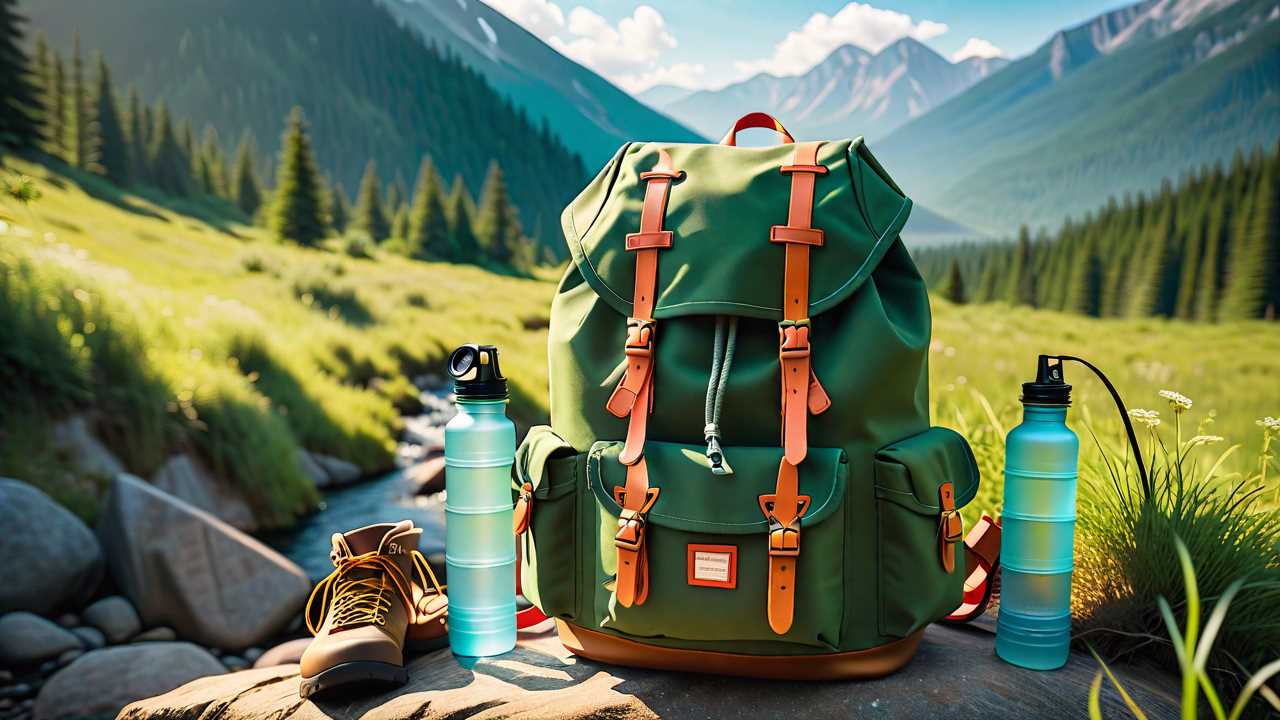Travel
What Gear Do I Need for Hiking in National Parks?

Did you know that over 300 million people visit National Parks annually in the United States? When gearing up for your next outdoor adventure, it’s important to have the right equipment to guarantee your safety and comfort. From sturdy boots and moisture-wicking socks to navigation tools and emergency supplies, each item plays a significant role in your hiking experience. But what specific gear should you prioritize to make the most of your time in these picturesque landscapes? Let’s discover the essentials you need to pack before hitting the trails.
Footwear and Clothing Essentials
When hiking in national parks, it’s crucial to equip yourself with proper footwear and clothing essentials to guarantee comfort and safety on the trails. Starting with footwear, opt for sturdy hiking boots with good ankle support and a grippy sole to navigate varying terrains. Make sure the boots are well broken-in to prevent blisters and discomfort during long hikes. Consider moisture-wicking socks to keep your feet dry and prevent chafing.
For clothing, choose lightweight, breathable layers that can be easily adjusted as you heat up or cool down on the trail. A moisture-wicking base layer will help regulate your body temperature and keep sweat away from your skin. Wear quick-drying pants and a moisture-wicking shirt to stay comfortable throughout your hike. Additionally, pack a waterproof jacket or poncho in case of unexpected rain showers.
Backpacking Gear
To properly equip yourself for backpacking in national parks, make sure you have the essential gear for extended outdoor adventures. A reliable backpack is essential; opt for one with adjustable straps and multiple compartments to distribute weight evenly.
Invest in a high-quality tent that’s lightweight and easy to set up, providing shelter during overnight stays. A sleeping bag rated for the expected temperature range will guarantee a comfortable night’s rest.
A portable stove for cooking meals, along with lightweight cookware, is vital for preparing food on the trail. Don’t forget a water filtration system to have access to clean drinking water throughout your journey.
Pack a first aid kit with essentials like bandages, antiseptic wipes, and pain relievers for any emergencies. Additionally, include a headlamp or flashlight for visibility at night, and a multi-tool for various tasks.
With these backpacking essentials, you’ll be prepared for the freedom and adventure that national parks offer.
Navigation Tools
How can you guarantee you stay on course during your hiking adventures in national parks? Navigation tools are essential for ensuring you don’t get lost while discovering the vast wilderness.
A reliable topographic map of the area is a must. Make sure it’s waterproof and always keep it in a protective case. Pair your map with a dependable compass. Learn how to use it before hitting the trails. Consider bringing a GPS device as a backup, especially in unfamiliar terrains. Apps on your phone can also be helpful, but remember to download maps offline in case of poor signal.
Trail markers and signs are valuable, but they may not always be present, so having your navigation tools is vital. Additionally, consider a guidebook or park-specific resources for detailed trail information. Familiarize yourself with the route before starting your hike.
Emergency Supplies
Make sure you pack essential emergency supplies for unexpected situations during your hiking expeditions in national parks. Being prepared can make a significant difference in handling emergencies effectively. Start with a well-stocked first aid kit containing bandages, antiseptic wipes, pain relievers, and any personal medications you may need.
Additionally, carry a multipurpose tool that includes a knife, scissors, and other useful features for various tasks. It’s important to have a reliable light source, like a headlamp or flashlight, in case you find yourself hiking after dark.
Emergency blankets are lightweight and compact, providing warmth and protection from the elements in case you get stranded. A whistle can be a lifesaver for signaling for help over long distances if needed.
Pack extra food and water to sustain you in case your hike takes longer than expected. A portable water filter or purification tablets can be invaluable if you run out of clean water sources.
Lastly, include a fully charged portable phone charger to ensure you can communicate if necessary. By carrying these emergency supplies, you can hike with confidence and readiness for any unforeseen circumstances.
Frequently Asked Questions
Can I Bring My Dog on Hiking Trails in National Parks?
You can’t bring your dog on most hiking trails in national parks due to wildlife protection and safety regulations. However, some parks have designated dog-friendly trails. Always verify park rules beforehand to guarantee compliance.
Are Campfires Allowed in All National Parks?
Yes, campfires are not allowed in all national parks. Regulations vary, so always check with park authorities before starting a fire. Be respectful of the environment and follow guidelines to guarantee safety for all.
Is There Electricity Available at Campsites in National Parks?
Electricity availability at campsites in national parks varies. Some parks offer hookups for campers, while others are more primitive. Research your destination to make sure you have the power you need for a comfortable stay.
Can I Use a Drone for Photography in National Parks?
You can’t use a drone for photography in national parks. Regulations strictly prohibit drone usage to preserve the natural environment and wildlife. Consider alternative photography methods that respect park rules and the beauty of nature.
Are Bear Canisters Required for Food Storage in All National Parks?
When exploring national parks, bear canisters symbolize respect for wildlife and nature. In all parks, these containers are essential for safely storing food. Follow regulations, keep bears wild, and enjoy your hike responsibly.

Hi, I’m Kyle Rivera, a news journalist and blog editor with the Daily Evening News. A TCU alum with a flair for storytelling, I spend my days uncovering impactful stories and my evenings exploring the realms of yoga, cycling, and whimsically bad poetry.
Travel is my escape; I’ve trekked from Tokyo’s neon lights to Iceland’s tranquil vistas. But no journey is complete without Mogli, my Golden Retriever, who’s redefining his breed standards in the most charming ways.
I love connecting with fellow travelers, yogis, cyclists, and anyone who enjoys a laugh at my poetic attempts. If you’re into stories that inspire, travel escapades, or just want to see what Mogli and I are up to, I’d love to hear from you on Instagram or Facebook. Let’s share tales and tips from around the globe!

